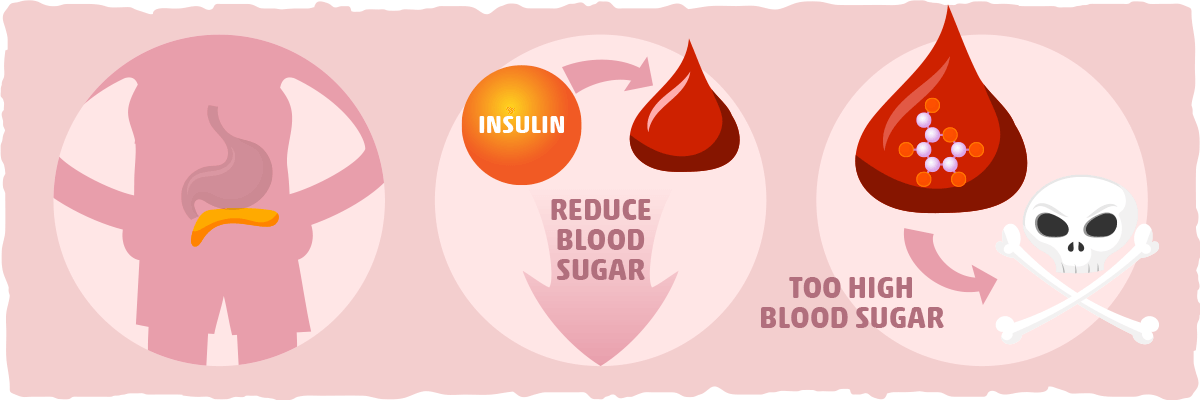
Unlocking the Key to Health: Understanding and Improving Insulin Sensitivity
Insulin sensitivity refers to how responsive your body’s cells are to insulin, a hormone that helps regulate blood sugar levels. Insulin sensitivity is an important factor in overall health, as poor insulin sensitivity can contribute to a range of health problems, including diabetes, obesity, and heart disease.
Understanding Insulin Sensitivity:
When we eat carbohydrates, our body breaks them down into glucose, which is then transported through the bloodstream to our cells. Insulin is produced by the pancreas and acts as a key, unlocking the cells so that glucose can enter and be used for energy. When insulin sensitivity is high, our cells respond effectively to insulin, and glucose is efficiently absorbed, reducing the amount of glucose circulating in the blood.
However, when insulin sensitivity is low, our cells do not respond as effectively to insulin, meaning glucose remains in the bloodstream for longer, leading to high blood sugar levels. Over time, this can cause the pancreas to produce more insulin in an attempt to regulate blood sugar levels, leading to insulin resistance, a precursor to type 2 diabetes.
Factors affecting insulin sensitivity:
A variety of factors can influence insulin sensitivity, including:
- Diet: A diet high in processed foods, sugar, and saturated fats can contribute to insulin resistance, while a diet rich in fiber, healthy fats, and whole foods can improve insulin sensitivity.
- Exercise: Regular exercise has been shown to improve insulin sensitivity by helping muscles to absorb glucose and reducing inflammation.
- Body composition: Excess body fat, particularly around the waist, has been linked to insulin resistance.
- Genetics: Insulin sensitivity can be influenced by genetics, with some people being more predisposed to insulin resistance than others.
Why is insulin sensitivity important?
Insulin sensitivity is an important marker of overall health. Poor insulin sensitivity is linked to a range of health problems, including:
- Type 2 diabetes: Insulin resistance is a precursor to type 2 diabetes, a condition where the body is unable to effectively regulate blood sugar levels.
- Cardiovascular disease: High blood sugar levels and insulin resistance have been linked to an increased risk of heart disease.
- Obesity: Insulin resistance has been linked to weight gain and obesity.
- Inflammation: Insulin resistance can cause inflammation in the body, which has been linked to a range of health problems, including autoimmune conditions, cancer, and Alzheimer’s disease.
Improving insulin sensitivity:
The good news is that insulin sensitivity can be improved through lifestyle changes, including:
- Diet: Eating a diet rich in fiber, healthy fats, and whole foods, while limiting processed foods and sugar, can improve insulin sensitivity.
- Exercise: Regular exercise, particularly strength training, can improve insulin sensitivity by helping muscles to absorb glucose and reducing inflammation.
- Sleep: Getting enough sleep is important for overall health, and studies have shown that poor sleep can contribute to insulin resistance.
- Stress management: Chronic stress has been linked to insulin resistance, so finding ways to manage stress, such as through meditation, yoga, or therapy, can improve insulin sensitivity.
Conclusion:
Insulin sensitivity is an important marker of overall health, with poor insulin sensitivity linked to a range of health problems, including diabetes, heart disease, and obesity. Fortunately, insulin sensitivity can be improved through lifestyle changes, including diet, exercise, sleep, and stress management. By taking steps to improve insulin sensitivity, we can improve our overall health and reduce our risk of chronic disease
About your Author: Matias Kalmar
Matias is a Personal Trainer at the following locations. SMTF Temecula, SMTF Delmar, SMTF San Diego
Growing up in Argentina, I never placed much emphasis on fitness and health. However, when I moved to the United States, I realized the impact that a healthy lifestyle could have on one’s quality of life. Motivated by my own transformation, I decided to become a personal trainer and help others achieve their fitness goal, READ MORE ABOUT MATIAS: Here

